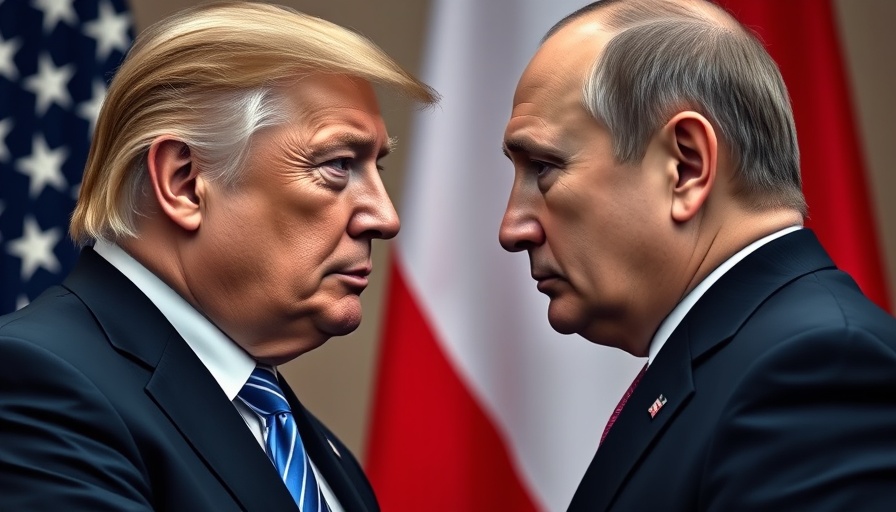
Trump and Putin’s Cordial Exchange: An Unexpected Turn
Former President Donald Trump recently shared details about his "great" phone call with Russian President Vladimir Putin, drawing attention not only for his positive outlook on the exchange but also for the geopolitical implications it suggests. The call reportedly focused on the ongoing conflict in Ukraine, with discussions filtering through a cordial tone that hints at the possibility of future cooperation.
Ceasefire: A Step Toward Peace?
During the conversation, the two leaders emphasized the need for de-escalation in Ukraine, specifically aiming for a partial ceasefire involving energy and infrastructure. The White House's official readout mentioned that both leaders agreed on a ceasefire to take effect immediately, noted specifically in the context of energy infrastructure, an area that has seen significant military action in recent months.
This move is critical considering both nations' growing weariness over the protracted conflict. The access to energy resources remains a sticking point; as Trump pointed out, "We will be talking about land. We will be talking about power plants," indicating both leaders are eyeing the divvying of assets underpins the political map of Eastern Europe.
The Underlying Tensions: Diverging Interests
While Trump’s optimistic reports may veer toward a narrative of mutual agreement, the specter of skepticism looms large. Ukrainian President Volodymyr Zelenskyy raised concerns about Russia's integrity in adhering to ceasefires, citing previous failures when guidelines were flouted. The historical context underlines deeper rifts; recent agreements between the two countries often lead to disappointment.
The Kremlin's insistence on demilitarization and ending foreign military aid to Ukraine serves as a reminder that the path to lasting peace is murky and fraught with challenges. As the conflict has evolved, so have the demands from both sides, complicating potential negotiations.
Global Implications: Shifting Geopolitical Dynamics
The ramifications of this phone call span beyond the Ukraine conflict, suggesting a potential pivot in U.S. foreign policy towards Russia. The two leaders discussed not only the immediate situation in Ukraine but also expressed a desire for improved bilateral relations, perhaps eyeing significant economic opportunities once tensions ease.
However, many analysts caution against reading too positively into Trump’s remarks. The conversation's outcomes will undoubtedly depend on Russia's compliance, which remains uncertain given the current international climate and ongoing sanctions.
The Future of Russia-U.S. Relations: What Lies Ahead?
Moving forward, both leaders acknowledged that fostering a better relationship could yield substantial benefits. Economic deals and strategic alliances could emerge, but analysts emphasize that any collaboration must first navigate the mistrust that characterizes the current geopolitical landscape.
As political leaders from both nations stand at a crossroads, Trump's optimistic outlook faces a reality filled with entrenched positions and historic grievances. Negotiators will need to tread carefully, balancing national interests with the urgent call for peace in Ukraine.
Key Takeaways: The Need for Cautious Optimism
The conversation between Trump and Putin touches on crucial aspects for those observing international relations, particularly in the context of military engagements and energy politics. While the prospect of a ceasefire has emerged as a sign of hope, stakeholders remain divided.
As citizens move through these turbulent times, understanding these dynamics will be essential in shaping public opinion and political discourse in the face of national and international news. Ultimately, Trump's call reflects both an opportunity for renewed dialogue and a reminder of the complexities inherent in U.S.-Russia relations.
Readers are encouraged to follow developments in this story as the paths toward peace and cooperation unfold. Stay informed about ongoing discussions and the shifting nature of national and international politics, as each call and conversation might hold the key to forging a new reality.
 Add Element
Add Element  Add Row
Add Row 



 Add Row
Add Row  Add
Add 


Write A Comment